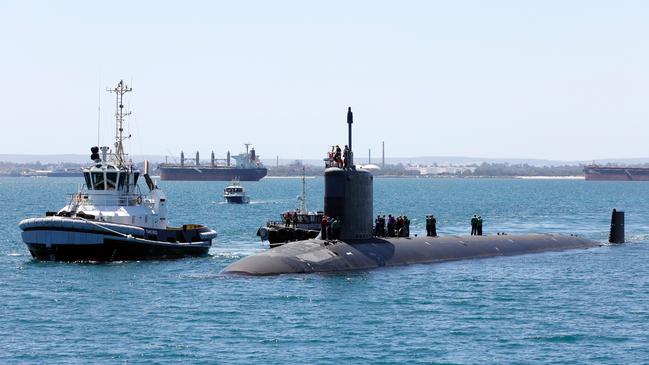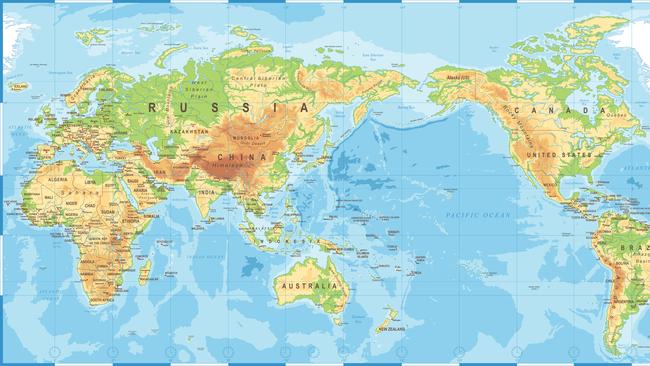Why naval power is key to our security
More than 230 years on from European settlement, Australia must deliver defence planning that suits the times.

Europeans refer to Australia as Down Under because we’re tucked away somewhere between south-east Asia and Antarctica – and unlike the Americas, our continent isn’t on the way to anywhere in particular. Which explains why European settlement occurred later here than elsewhere. North America was “discovered” by Columbus in the late 1400s. But apart from the tantalising prospect of a mysterious (possibly Portuguese) mahogany ship that foundered on a beach east of Port Fairy at around this time, it wasn’t until the early 1600s that a European set foot on Australian soil – the Dutchman Willem Jansz, on Cape York. Much later, in 1788, the French explorer La Perouse coincidentally sailed into Botany Bay on the day Britain’s recently arrived First Fleet was transferring to Port Jackson. What were the chances!

And so while “discovering” the Americas may have been a straightforward case of sailing west from Europe, bumping into Australia involved either rounding Africa’s cape and then turning left or, more boldly, crossing the Pacific from east to west. The point is that Australia was always going to be “discovered” by Europeans long after the Americas, and only then by the most powerful of seafaring nations at the time, given our remoteness.
In fact, so far removed from Britain is Australia that early on we developed quite complex manufacturing capabilities, especially in the wake of the gold rushes. At various times we have learnt skills, developed businesses and created alliances to suit our needs. We relied on Britian to help defend Australia in WWII when it was thought a garrison stationed at Singapore would be sufficient to dissuade an aggressor. (It wasn’t.) After the war we widened our alliances to include the US.
I can’t help but think that in some corners of the world there are those who are peeved by the fact that Australia is the only nation on Earth to claim the resources of an entire continent. We also claim a good chunk of the continent of Antarctica. You have to admit, it’s quite a land grab. And it doesn’t end there! Australia also has sovereignty over a series of offshore territories, including islands 4000km from the mainland such as Heard Island and McDonald Islands.
It’s not inconceivable that in the resource-hungry world of the 21st century Australia’s vast territory might be regarded as excessive and/or possibly as the spoils of colonialism. And so now, more than 230 years on from European settlement, Australia must deliver defence planning that suits the times. This country is a middle-ranking economic power that should punch above its weight in naval capabilities including in ship-building, engineering and training to deliver the assets and the skilled labour needed to assure sea lanes, and to patrol our sovereign waters.
The navy was and I suspect will always be the mainstay of Australian security, given the extent of our maritime interests and exposure. An alliance with America and the UK via AUKUS does appear to provide the security capability we may need in the decades ahead. Indeed, this is precisely the kind of capability you would logically expect from a resource-rich, thinly-populated remote continent that was, is and shall ever remain girt by sea.







